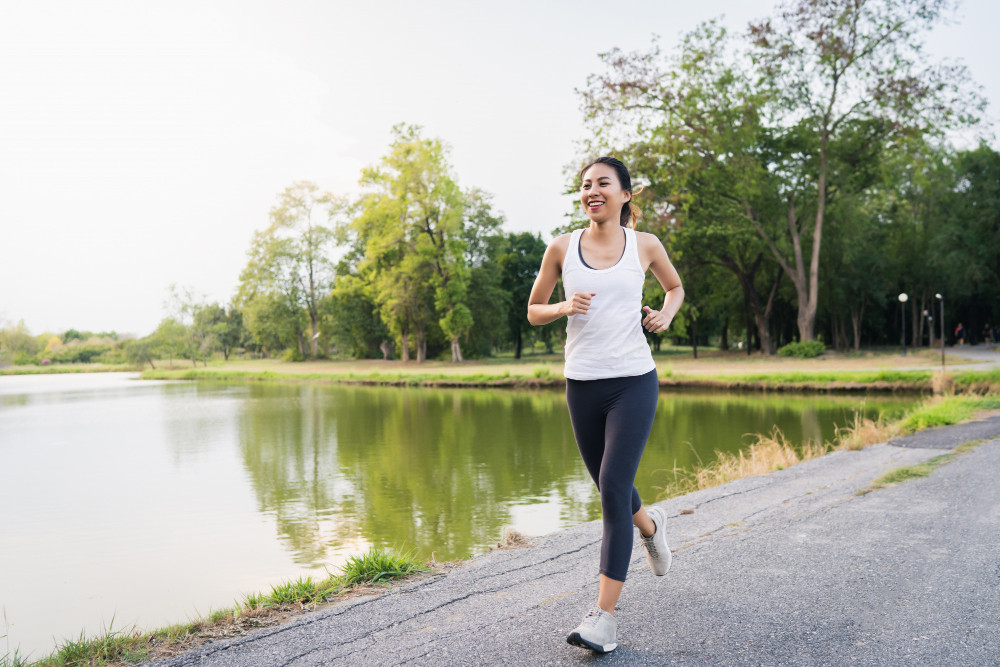In Indonesia, a tropical country that has two distinct seasons – the rainy season and summer – the highest rainfall can indeed have an impact on outdoor activities. However, does this mean you should stop sporting activities altogether during this time? Although outdoor exercise may face challenges due to changes in weather, there are still various tips and options to maintain your fitness routine.
Some tips for staying safe while exercising during the rainy season
Sports generally take place away from home. Among these are jogging, cycling, and other similar pursuits. As the rainy season begins, roads will grow slicker and muddier, heightening the danger of accidents during outdoor activities. In addition, working out in the rain increases your chances of falling ill.
To maintain safe exercise routines during the rainy season, consider the following suggestions:
Choose Proper Clothing
If you want to keep exercising outside your home during the rainy season, make sure you wear clothes that match the weather outside the home. The rainy season makes the air colder, so you should wear warm sports clothes or those designed to exercise in cold weather.
You can also use your hat and gloves to keep your body temperature warm. However, it's best to avoid wearing exercise clothes too thick because they can make you sweat too much which risks causing dehydration.
Which is no less important. You also need to adjust the type of shoes you wear to the outside weather. Avoid using shoes with deep or thin soles to minimize the risk of injury.
Begin with a Warm-Up and end with a Cool-Down
You may reduce your exercise intensity in the rainy season. However, this is not a reason to skip warming up before exercising. Exercising without warming up can increase your risk of sprains and injuries. For this reason, keep warming up before exercising according to the type of exercise you are going to do.
It's important to not only prepare your body by warming up before exercise but also to allow it to recover by cooling down afterwards. For running, a leisurely walk for 5 - 10 minutes can help bring down your body temperature.
Read more: Risk Of Not Heating And Cooling After Sporting AI Care (ai-care.id)
Increase your liquid intake
Despite the cold air making you feel less thirsty, your body continues to sweat during physical activity. Be sure to drink plenty of fluids. The recommended daily fluid intake for adults is approximately 1.5 to 2 liters, though this may change depending on your activity level. A reliable method for assessing dehydration is by observing the shade of your urine before and post-workout. If your urine appears darker in color, it might be a sign of dehydration.
Can engage in indoor sports activities.
To protect yourself from unexpected rainfall, consider engaging in indoor workouts. Indoor activities for exercise include visiting the gym, playing badminton or tennis in a covered facility, swimming at an indoor pool, practicing basketball in a recreational center, doing yoga or pilates, and numerous other options.
Want to know more information on health tips, tricks, first aid, and other home remedies? Click here!
- dr. Yuliana Inosensia
EverydayHealth.com. (n.d.). How to Workout Outside in the Winter | Everyday Health. [online] Available at: https://www.everydayhealth.com/healthy-living/fitness/easy-winter-exercise-tips-help-you-stay-fit/.
LIVESTRONG.COM. (n.d.). Can Running in the Rain Make You Sick? [online] Available at: https://www.livestrong.com/article/496499-can-running-in-the-rain-make-you-sick/
Mayo Clinic Staff (2019). Winter fitness: Safety tips for exercising outdoors. [online] Mayo Clinic. Available at: https://www.mayoclinic.org/healthy-lifestyle/fitness/in-depth/fitness/art-20045626.
Cleveland Clinic. (2020). How to Stay Active Outside When the Weather Gets Colder. [online] Available at: https://health.clevelandclinic.org/how-to-stay-active-outside-when-the-weather-get s-colder/












